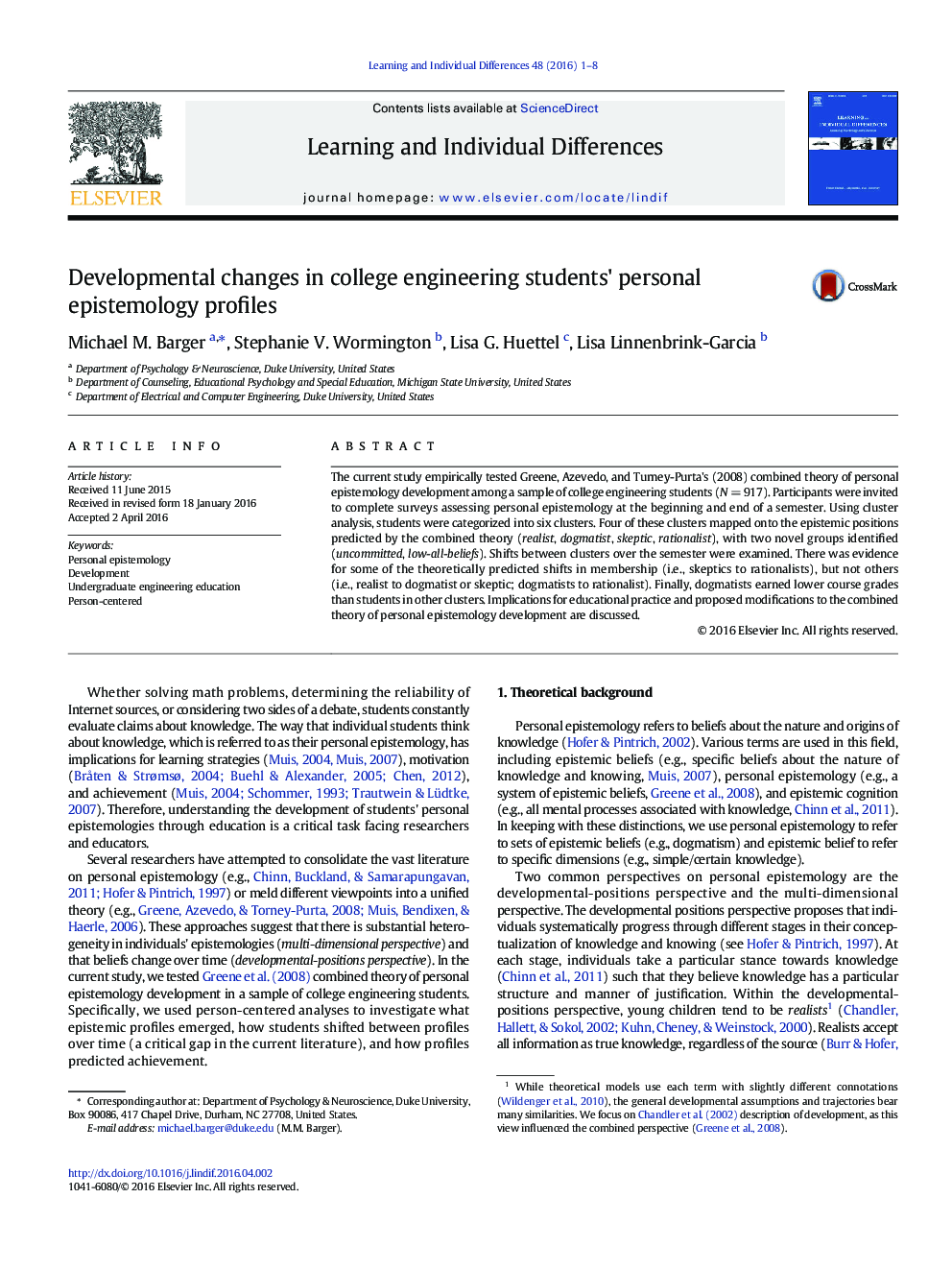| Article ID | Journal | Published Year | Pages | File Type |
|---|---|---|---|---|
| 6844848 | Learning and Individual Differences | 2016 | 8 Pages |
Abstract
The current study empirically tested Greene, Azevedo, and Turney-Purta's (2008) combined theory of personal epistemology development among a sample of college engineering students (NÂ =Â 917). Participants were invited to complete surveys assessing personal epistemology at the beginning and end of a semester. Using cluster analysis, students were categorized into six clusters. Four of these clusters mapped onto the epistemic positions predicted by the combined theory (realist, dogmatist, skeptic, rationalist), with two novel groups identified (uncommitted, low-all-beliefs). Shifts between clusters over the semester were examined. There was evidence for some of the theoretically predicted shifts in membership (i.e., skeptics to rationalists), but not others (i.e., realist to dogmatist or skeptic; dogmatists to rationalist). Finally, dogmatists earned lower course grades than students in other clusters. Implications for educational practice and proposed modifications to the combined theory of personal epistemology development are discussed.
Related Topics
Social Sciences and Humanities
Psychology
Developmental and Educational Psychology
Authors
Michael M. Barger, Stephanie V. Wormington, Lisa G. Huettel, Lisa Linnenbrink-Garcia,
